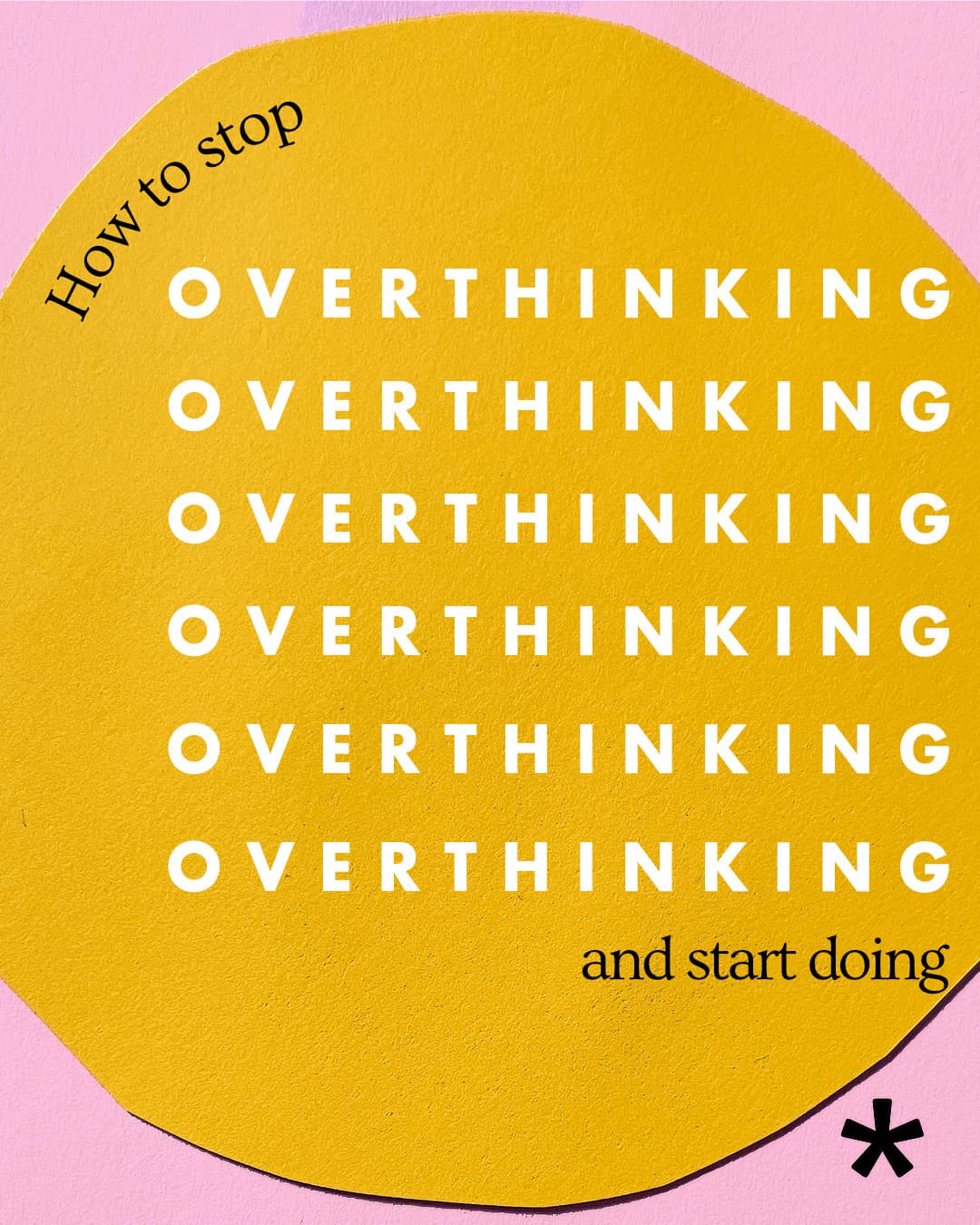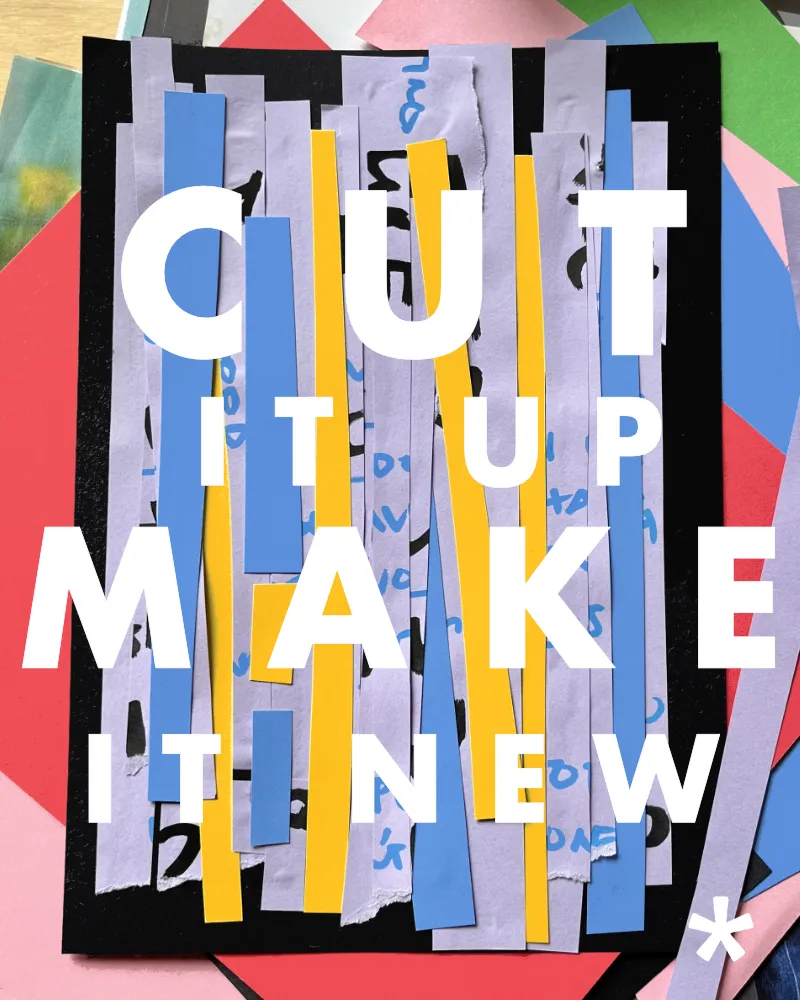Overthinking. It’s the thing that keeps you distracted during the day or up at night. It’s the should dos, the what ifs, the could have been. It’s hard and complicated when you’re an overthinker. The first thing is, don’t give yourself a hard time if you’re prone to overthinking or worrying. Here we share some of the reasons for overthinking, and ways to reframe it and move forward in achieving your goals.
Firstly, what’s behind overthinking?
Overthinking — like worry and procrastination — is a way of trying to make ourselves feel safe. It’s often triggered by a negative experience or a number of events, and it’s our brain’s way of trying to find a solution, perhaps when there isn’t one. It involves thinking about every possible outcome and coming up with a solution or if it involves a past event, an alternative outcome.
What’s the problem with overthinking?
Thinking about a problem from all angles is great if you’re doing project management or risk assessments. The problem with overthinking is that it’s taken to the extreme. Instead of being able to put your ideas into action, you can end up feeling overwhelmed and unable to make decisions. Overthinking also gives us a false impression of ourselves and what we can control. Even though it negatively frames us as the reason why something could or did go wrong, it also gives us god-like omnipotent powers, letting us falsely believe we can control everything and have ultimate responsibility for all possible outcomes. There are also long-term effects, with overthinkers more likely to suffer from anxiety and depression.
What happens when you overthink?
Your mind works a little like a record. When a record gets scratched, it can get stuck in the groove and repeat. When we go over and over an idea without taking any action we can start to believe that this process is beneficial or productive — even though it’s not — and, after a while, it becomes a habit.
What can you do?
Firstly, if you’re an overthinker, be gentle with yourself. There’s a reason your brain is thinking this way, and it’s trying to make you feel safe by telling you you’re in control. Be gentle while you work on forming new habits, and remember it takes time. You’ve become used to a way of thinking — and while it’s not helping you at this moment — it will all be ok.
Let go of what you can’t control
When I used to organise events, for anything outside I’d have a plan for bad weather but I would never beat myself up if it started to rain. Why? Because I have absolutely no control over the weather. I had control over so many aspects but this was not one of them. A simple tool to try is to ask yourself honestly whether you have any control over the situation. If it’s a no, acknowledge the thought — remembering it’s ok to think about these things — but move on.
Remind yourself you’re safe
Keep telling yourself you’re safe. Your overthinking is a way of trying to keep you safe by telling you you’re in control. You have to gently reassure yourself that you’re safe while you let go of the thought that you control everything.
Say kind words to yourself
The words you say to yourself are more powerful than any words anyone else can say to you. These words are also known as positive affirmations: statements you say to yourself to help change your mindset. The key is to repeat them often — and if you can — in the mirror, looking yourself in the eye and smiling while you say them. It’s also ok if you don’t believe them at first. Just keep saying them, and keep being kind to yourself.
Reframe your thoughts
If you catch yourself thinking that there’s something else you can do or could have changed — reframe it. Turn it around and question it. Is keeping on thinking about it going to change what you need to do, or is there really anything you could have done differently? Maybe something in your past didn’t go right — which can be the trigger for overthinking — but instead of berating yourself, celebrate your failure and congratulate yourself for learning and growing.
Focus on your sleep
Getting enough rest and sleep is both the solution as well as tricky for the overthinker as bedtime can be the moment your thinking can go into overdrive. Try to develop a sleep routine that doesn’t involve active thinking — no nighttime to-do lists — but is focused on preparing yourself for sleep. A warm shower, a hot water bottle, meditating, journaling, reading, even watching tv: anything that makes you happy and indicates to your body that it’s time to rest.
Reduce negative stimulus
Remove the things you don’t like, replacing them with what you do. Overthinking can become triggered by feeling overwhelmed or stimulus so putting on some headphones, silencing notifications, and focusing on doing something that makes you feel good can help get you into your happy place.
Do something creative
You don’t have to be a creative person to do something creative. Making something — it doesn’t matter what it is — is really good for an overthinker’s brain. Do a five-minute collage, cook, draw or write. It doesn’t matter what it is and whether it’s good, just stretch those creative muscles to give your brain a little push in the right direction.
Get physical
Physical exercise releases serotonin and dopamine— which all make you feel good. Get outside, get moving and you’ll find your thinking shifting to other things.
Keep your to-do lists short
Most of us have too many actions on our to-do lists. Instead of having 100 things, focus on three a day. Use notes or your calendar to help you focus on what you need to get done.
Do it anyway
Until you develop a new habit, your overthinking impulse will be strong. Don’t get upset when you overthink, but nudge yourself to do it anyway. Ask yourself what’s the worst that can happen — nothing — and even if you’re anxious, push yourself to put it out there and move on to the next thing.






